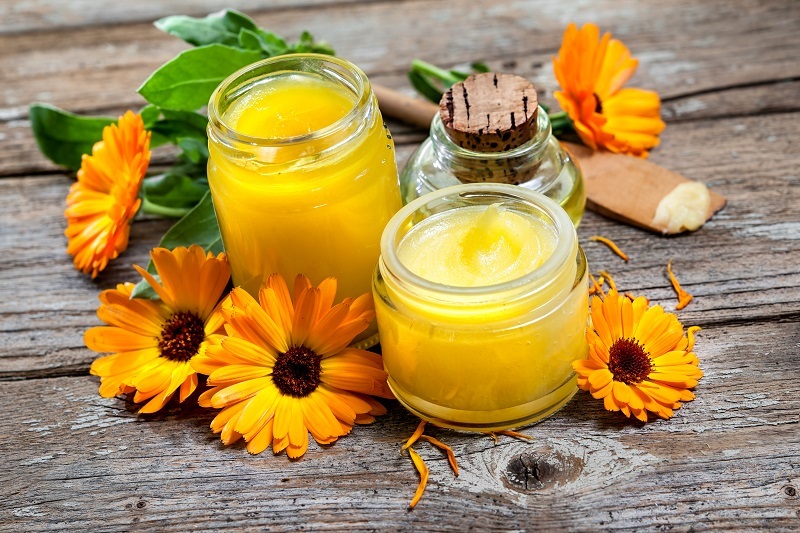Peony's Colorful Language: A Symbolic Interpretation
Posted on 02/07/2025
Peony's Colorful Language: A Symbolic Interpretation
The peony flower, known for its lush blooms and vibrant colors, is more than just a garden beauty or a favorite floral centerpiece. Throughout history and across cultures, the peony's colorful language has communicated messages of love, honor, prosperity, and even subtle warnings. In this comprehensive exploration, we delve into the symbolic meanings of peonies, their evolution through myth and tradition, and how their colors speak volumes in the worlds of art, literature, and personal expression.

A Brief Overview: The Peony's Timeless Allure
The peony (Paeonia) has captivated hearts for thousands of years. Native to Asia, Europe, and Western North America, the peony boasts an extensive history in Chinese, Japanese, and Western culture.
- In China, peonies symbolize wealth, nobility, and feminine beauty. Called the "King of Flowers," they are especially revered in Chinese art and festivals.
- Japanese tradition connects peonies to bravery and good fortune, celebrating their lush blossoms in paintings and poetry.
- In the West, peonies are associated with romance, honor, and healing, making them a beloved choice for weddings and medicine gardens alike.
This peony symbolism is not static; it evolves depending on the color, variety, and cultural context, making the peony's colorful language a fascinating subject of interpretation.
The Significance of Peony Colors
Color plays a pivotal role in the peony's symbolic interpretation. Each hue carries its own set of meanings, offering a nuanced vocabulary for expressing deep emotions and intentions.
Red Peonies: Love, Prosperity, and Passion
Red peonies are perhaps the most iconic and deeply symbolic. In China, these blooms are linked to wealth, honor, and prosperity--often displayed during festivals or gifted to convey messages of good luck and high status. In the language of flowers, they also represent deep romance and passionate affection.
- Symbol of Good Fortune: Red peonies are commonly used in weddings and New Year celebrations to attract luck and abundance.
- Depth of Emotion: Their vivid shade suggests burning passion and ardor, making them a popular choice for lovers.
Pink Peonies: Romance, Grace, and Feminine Beauty
When it comes to expressing admiration and appreciation, pink peonies are unrivaled. Associated with grace, femininity, and delicate charm, these flowers are a perennial favorite for Mother's Day, anniversaries, and bridal bouquets.
- Gentle Romance: Lighter shades communicate subtle affection or budding love.
- Gratitude and Admiration: Soft pinks are often given to mentor figures or cherished friends.
White Peonies: Purity, Apology, and New Beginnings
White peonies bring forth themes of innocence, humility, and a fresh start. Traditionally, white is a mourning color in Asian cultures, but in the West, it symbolizes purity and new journeys.
- Atonement: White peonies are sometimes offered as expressions of apology or regret.
- Fresh Starts: They also represent new beginnings, frequently appearing in wedding settings.
Yellow Peonies: Optimism and Joy
While less common, yellow peonies represent happiness, renewal, and positive energy. They're ideal gifts for those embarking on new adventures or needing a boost of encouragement.
- Friendship and Joy: Their sunny hue communicates warmth and affection in platonic relationships.
- Renewal: Yellow peonies signal the start of something wonderful--perfect for housewarmings or baby showers.
Purple Peonies: Mystery and Nobility
Purple, long associated with royalty and spirituality, lends peonies an air of mystique and sophistication. These blooms can express admiration for someone's wisdom or bestow honor upon a respected acquaintance.
- Enigmatic Beauty: Perfect for someone who embodies uniqueness or inspires awe.
- Royal Affection: A sign of deep respect and noble intentions.
Peonies in Mythology and Folklore
To truly appreciate the symbolic interpretation of peonies, it's essential to examine the myths and folklore that have shaped their meanings. The roots--both literal and figurative--of the peony run deep.
Chinese Legends: The King of Flowers
In Chinese mythology, the peony embodies prosperity, romance, and aristocratic beauty. According to one legend, the Tang Dynasty Empress Wu Zetian ordered all flowers in her gardens to bloom in winter--only the peony disobeyed. Infuriated, she banished the peonies, but they thrived in exile, reinforcing their reputation for resilience and dignity.
Peonies are also woven into stories of love and transformation. In some versions, the peony is said to have been created from the tears of a lovesick maiden, giving the flower its connection to bittersweet romance and enduring desire.
Western Folklore: The Physician's Flower
Ancient Greeks named the flower for Paeon, a physician to the gods, who used peony roots for healing. In this context, the peony's language included protection, health, and the miraculous.
- Protection from Evil: In medieval Europe, peony seeds were believed to ward off evil spirits and storms.
- Healing Rituals: Both the roots and petals were used in herbal medicine to treat a variety of ailments.
The Peony in Art and Literature
Across the centuries, the peony's colorful symbolism has inspired countless artists and writers:
- Chinese Brush Painting: Artists capture the lavishness of peonies to evoke wealth, luck, and graceful femininity.
- Japanese Ukiyo-e Prints: Peonies are often paired with aristocrats or mythical creatures, highlighting status and beauty.
- Victorian Novels: The peony appears in gardens and bouquets as a silent communicator of emotion and intent.
Through these works, the peony's language transcends literal meaning, influencing fashion, decor, and even modern tattoo art as a sign of opulence, personal strength, or romantic longing.
Practical Symbolism: Peonies in Modern Day Life
Weddings
The use of peonies in weddings is not accidental. By including these blooms in bouquets and centerpieces, couples invoke:
- Romantic Fortune: Especially with pink and red varieties.
- Blissful Marriages: Peonies are a wish for enduring happiness.
Gifting Peonies: Messages Without Words
The next time you gift peony flowers, consider the colorful language of the peony:
- Red: "I wish you wealth and a passionate life."
- Pink: "You are cherished and deeply admired."
- White: "Please forgive me," or "Starting anew."
- Yellow: "May joy and good fortune follow you."
- Purple: "You are noble and unique."
Peonies in Personal Growth
Many people choose to surround themselves with peony imagery or plants as a way to:
- Encourage positive energy in the home.
- Celebrate milestones, such as new jobs or relationships.
- Attract good luck or fortune for business ventures.
Decoding Peony's Colorful Language: A Quick Reference Guide
| Peony Color | Symbolic Meaning | Common Occasions |
|---|---|---|
| Red | Passion, Prosperity, Wealth | Weddings, Celebrations, Good Luck |
| Pink | Romance, Grace, Born Love | Anniversaries, Mother's Day, Courtship |
| White | Purity, Apology, New Start | Weddings, Apology Gifts, Memorials |
| Yellow | Happiness, Renewal, Friendship | Housewarming, Congratulations, Friendly Gifts |
| Purple | Nobility, Mystery, Respect | Honoring Mentors, Unique Occasions |

The Enduring Popularity of Peonies: Why Their Symbolism Matters
In modern times, the peony's symbolic interpretation continues to thrive. Their elegance graces home gardens and wedding venues; their motifs inspire everything from luxury fashion to body art. Yet, at the core of their appeal lies the belief that beauty, strength, and heartfelt messages can be conveyed through vibrant color and natural grace.
Understanding the peony's colorful language allows us not only to appreciate their beauty, but also to speak a silent, powerful language of emotion and intention.
- When you choose peonies, you choose a rich tradition of symbolism.
- Every bloom, every color, still whispers an ancient message into the present day.
In Conclusion: The Peony's Colorful Language and Its Lasting Legacy
From ancient palaces to modern-day celebrations, the peony's colorful language continues to enchant and communicate across generations and cultures. Whether you seek a symbol of love, strength, joy, or renewal, the peony's vibrant palette and storied history make it an unmatched floral storyteller.
Next time you admire a peony in a garden, receive a bouquet, or spot its lush image in art, remember the layers of meaning behind those petals--and let the peony's symbolic interpretation inspire your own story.
Let peonies bloom not only in your garden, but also in the language of your life.
```Latest Posts
The enchanting flower that mirrors you
Simple Steps to Keep Poinsettias Fresh and Vibrant
Peony's Colorful Language: A Symbolic Interpretation





